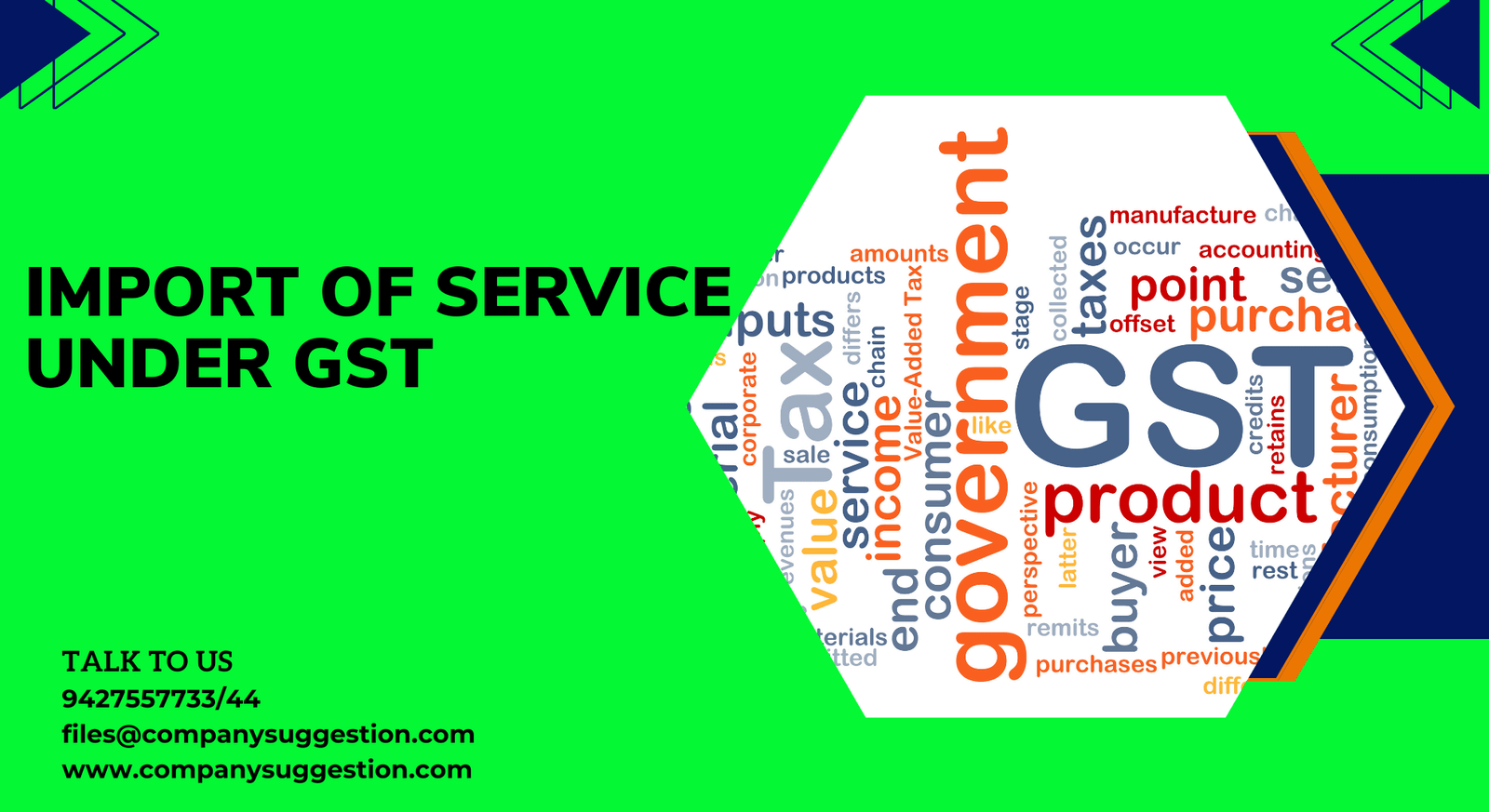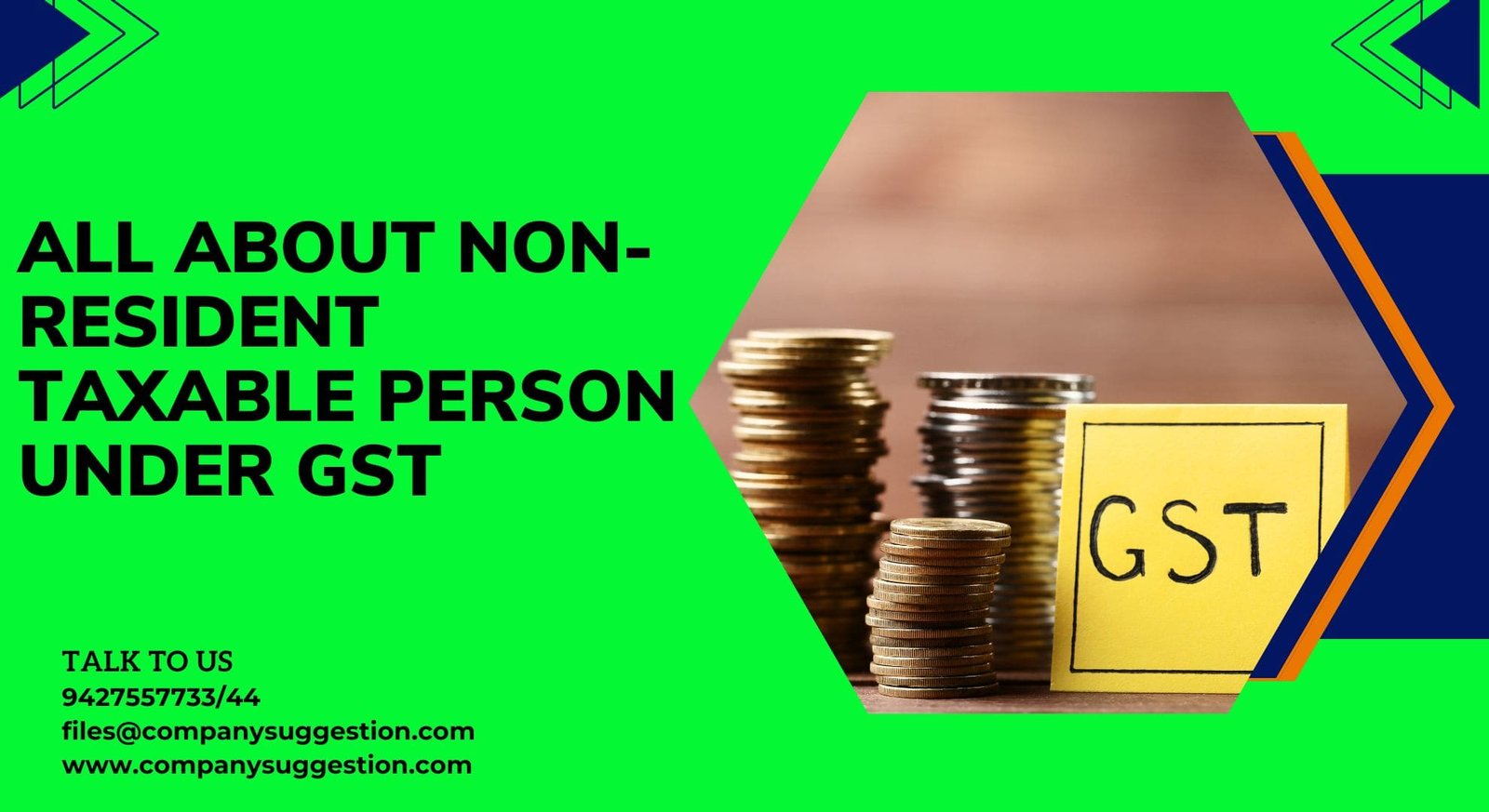IMPORT OF SERVICE UNDER GST :
“Import of service” typically refers to the receipt of services from a service provider located outside the country where the recipient is situated. This concept is often relevant in the context of international trade and taxation.
Under the IGST Act, “import of services” is defined under section 2(11) of IGST Act 2017 as the supply of any service when:
- The supplier of the service is located outside India.
- The recipient of the service is located in India.
- The place of supply of the service is in India.
An example of an import of service can involve a company in one country purchasing services from a company located in another country. Import of service typically occurs when a service is provided across international borders and consumed domestically.
Here’s a simplified example:
Scenario:
ABC Corp. based in the United States engages XYZ Solutions, a software development company based in India, to develop a custom software application for their business operations.
Details:
- Service Provider: XYZ Solutions, based in India, providing software development services.
- Service Receiver: ABC Corp., based in the United States, requiring custom software development services.
- Process:
- Contract Agreement: ABC Corp. and XYZ Solutions negotiate and agree upon the terms of the software development project, including specifications, timelines, and pricing.
- Service Provision: XYZ Solutions provides the software development services remotely from India. Their developers work on the project according to the agreed-upon specifications and timelines.
- Delivery of Service: Upon completion of the software development project, XYZ Solutions delivers the custom software to ABC Corp. electronically, typically via secure file transfer or through a digital platform.
- Payment: ABC Corp. remits payment to XYZ Solutions for the services rendered. The payment may be made through wire transfer, online payment platforms, or other agreed-upon methods, typically in accordance with the terms outlined in the contract agreement.
- Customs and Regulatory Compliance: ABC Corp. may need to comply with any applicable customs regulations or taxation laws related to the import of services, which could involve reporting the transaction to relevant authorities or paying any applicable taxes or duties.
In this example, the import of service involves ABC Corp. importing software development services from XYZ Solutions located in India to meet its business needs in the United States. This transaction is considered an import of service because it involves the purchase of services across international borders.
what comes under service?
Section 2(102) defines the term “services”. The definition of services is crucial in understanding the scope and applicability of GST in India, as GST is a comprehensive tax levied on the supply of goods and services.
The definition of “services” under Section 2(102) of the CGST Act is as follows:
The term “services” refers to anything other than goods. It includes activities such as transfer, exchange, license, rental, lease or disposal made or agreed to be made for a consideration by a person in the course or furtherance of business. It also encompasses activities that are specified as services under Schedule II of the CGST Act.
This broad definition ensures that a wide range of economic activities are covered under the scope of GST. The idea is to include any transaction that does not involve the supply of goods, thereby capturing all forms of service transactions within the ambit of GST.
Understanding the definition of “services” is key to determining the tax implications of various transactions under the GST regime. For instance, differentiating between a supply of goods and a supply of services is essential for the correct application of GST rates and compliance with GST laws.
Some key points regarding import of services under GST regime in India:
- Taxability: Imported services are generally subject to GST in India, similar to domestically supplied services. The recipient of the imported services is typically liable to pay GST under a reverse charge mechanism, where the recipient is required to self-assess and remit the tax to the government.
- Registration: Businesses that import taxable services need to register under GST if they meet the threshold requirements.
- Input Tax Credit (ITC): The recipient of imported services may be eligible to claim input tax credit for the GST paid on imported services, subject to compliance with GST laws and conditions for claiming ITC.
- Place of Supply Rules: The determination of the place of supply for imported services is crucial for the levy of GST. The place of supply rules under GST help determine whether an import of service is subject to Integrated GST (IGST) or Central GST (CGST) and State GST (SGST) depending on the location of the supplier and the recipient.
- Compliance Requirements: Importers of services are required to comply with various GST compliance requirements, including filing GST returns, payment of tax liabilities, and maintenance of records as per GST laws.
Exemptions from GST on Import of Services:
Certain services specified under Notification are exempt from GST under reverse charge when received by a registered person from a service provider located outside India. Some services under this exemption include:
- Services provided by an intermediary located outside India to a person in India.
- Import of services by the government, local authority, or governmental authority from a related person or from any of its establishments outside India, in the course or furtherance of business.













